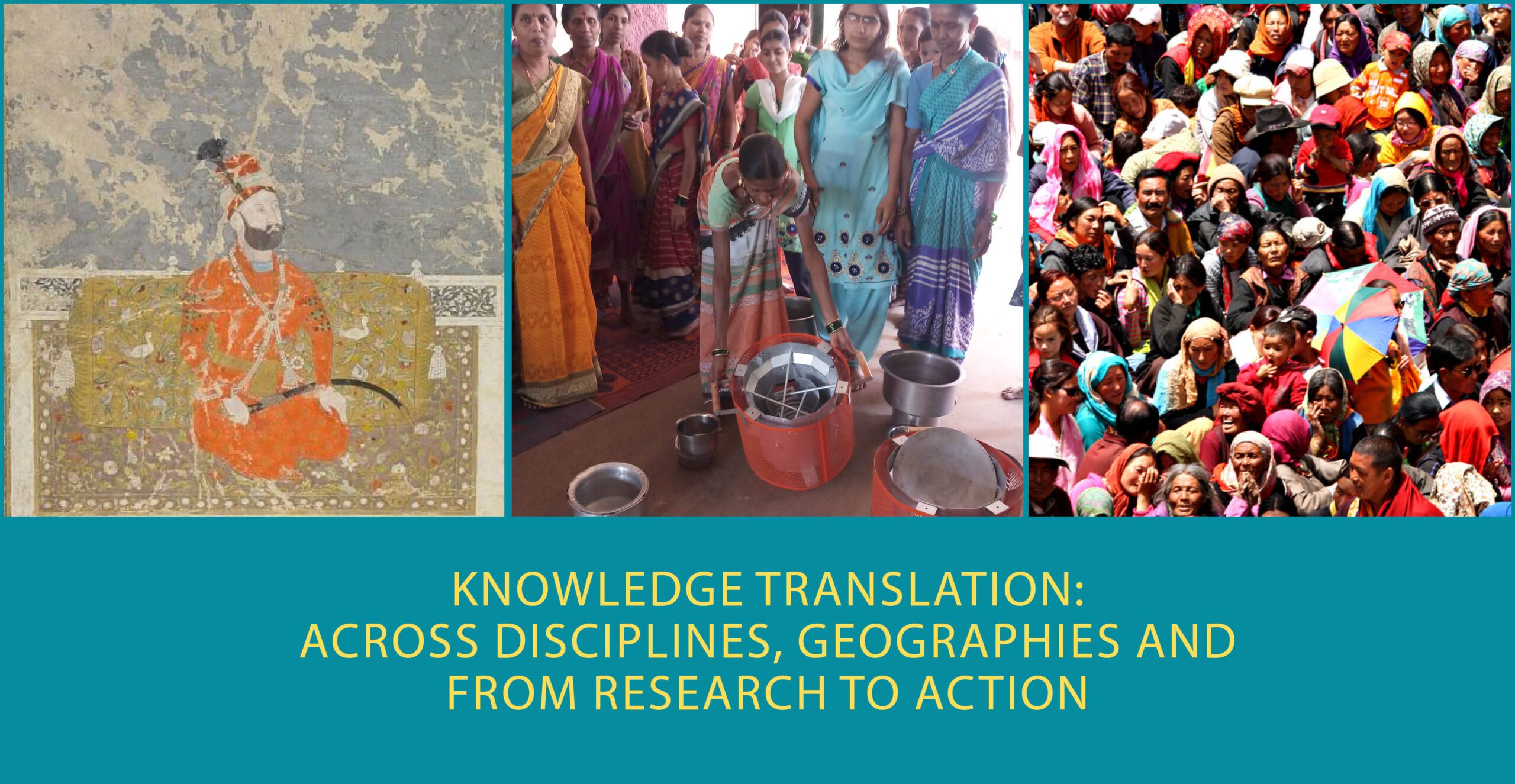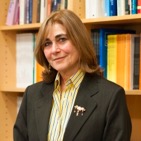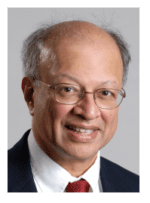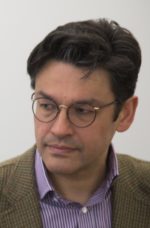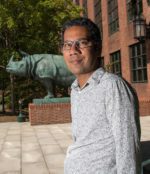[container_12]
Schedule | Speakers | Resources
[grid_6]
Shubh Agrawal, Candidate for C.A.S. in School Counseling, MA Licensure in Adolescent School Counseling at the Harvard Graduate School of Education
Shubh Agrawal is a graduate student specializing in school counseling, and is currently a Guidance Intern at the Curley K-8 School in Boston, where she manages caseloads related to academic, social, and emotional concerns, including college application, and transition planning. Additionally, she spent last summer as a research assistant at the Graduate School of Education, where she analyzed interview data for a colleague’s Doctoral Thesis on “Issues Facing Leadership in Higher Education.”
K.P. Balaraj, Co-founder of WestBridge Capital; Donor, Seed for Change Competition
Balaraj received an MBA from Harvard Business School, and a BS in Business Management from Brigham Young University Hawaii, where he graduated as valedictorian of his class. He is based in Bangalore, India. Balaraj is a Co-founder and Managing Director of WestBridge Capital, and has over 15 years of venture capital and private equity investing experience in India and Asia. WestBridge is a leading investor in high growth Indian companies across sectors including financial services, IT, consumer services, and healthcare. Balaraj was also a co-founder and Managing Director of Sequoia Capital India, where he helped lead and build one of the most successful venture capital franchises in India with a primary focus on early-stage technology and consumer investments.
Francesca Bewer, FXB Director of Research; Professor of the Practice of Health and Human Rights at the Harvard School of Public Health; the Jeremiah Smith Jr. Lecturer in Law at Harvard Law School; Adjunct Lecturer in Public Policy at the Harvard Kennedy School
Jacqueline Bhabha is Director of Research at the FXB Center for Health and Human Rights, a Professor of the Practice of Health and Human Rights at the Harvard Chan School of Public Health, and the Jeremiah Smith Jnr. Lecturer in Law at Harvard Law School. She has published extensively on issues of transnational child migration, refugee protection, children’s rights, and citizenship. She is currently leading several research projects on distress youth migration in the Mediterranean basin and on harm prevention and capacity building in the child protection field.
Francesca Bewer, Research Curator of the Conservation and Technical Study Programs; Director of Summer Institute for Technical Studies in Art, Harvard Art Museums
Francesca Bewer is Research Curator of the Conservation and Technical Study Programs and Director of Summer Institute for Technical Studies in Art at the Harvard Art Museums. Francesca she serves as liaison between the Division of Academic and Public Programs and the Straus Center for Conservation and Technical Studies. An expert in the technical study of bronzes and on the history of conservation, she has published extensively on European bronze sculpture of the 16th through 18th centuries. She is a founding member of the Copper Alloy Sculpture Techniques and history: International iNterdisciplinary Group (CAST:ING).
Pritha Chatterjee, Fellow at Berkman Klein Center for Internet and Society, Harvard University
Pritha Chatterjee is a health journalist from India with six years of experience with a national daily newspaper covering the intersections of gender, sectarian violence, social norms, sanitation and environment with population health outcomes. She recently graduated with a Master’s in Public Health from Harvard University, focusing on social and behavioral sciences. She now works in research on behavioral change communication around open defecation, family planning, and gender violence in India and South Asia, both through a fellowship at the Harvard School of Public Health and her work at the Berkman Klein Center.
Katherine Eremin, Harvard Art Museums, Harvard University
Katherine Eremin studied Natural Sciences at the University of Cambridge and received a Ph.D. in metamorphic petrology from the University of Cambridge in 1994. Following this, she joined the National Museums of Scotland as an inorganic scientist in the Department of Conservation and Analytical Research. In 2005, she moved to the Straus Center for Conservation and Technical Studies at the Harvard Art Museums, where she is currently the Patricia Cornwell Senior Conservation Scientist. At the Harvard Art Museums, she is involved in the analysis of inorganic materials on artifacts from a wide range of cultures, with a particular focus on glass, pigments, and metals.
Ashok Gadgil, Faculty Senior Scientist at Lawrence Berkeley National Laboratory; Andrew and Virginia Rudd Family Foundation Chair Professor of Safe Water and Sanitation, UC Berkeley
Ashok Gadgil Faculty Senior Scientist and was Director of the Energy and Environmental Technologies Division for 2010-2015 at Lawrence Berkeley National Laboratory. He is also Professor of Civil and Environmental Engineering at the University of California, Berkeley. He specializes in heat transfer, fluid dynamics, and technology design for development. He also has substantial experience in technical, economic, and policy research on energy efficiency and its implementation — particularly in developing countries.
[/grid_6]
[grid_6]
Narayan Khandekar, Director of the Straus Center for Conservation and Technical Studies, Harvard Art Museums
Narayan Khandekar leads the Straus Center’s conservation and research activities, as well as those for the Center for the Technical Study of Modern Art. Specializing in the scientific analysis of paintings and painted surfaces, he has published extensively on the subject. His laboratory established a postdoctoral fellowship for scientists wishing to pursue a career in conservation science. Khandekar has coordinated international groups on conservation science and has sat on numerous advisory committees. He curates the Forbes Pigment Collection and the Gettens Collection of Binding Media and Varnishes.
Tarun Khanna, Director, the Lakshmi Mittal South Asia Institute; Jorge Paulo Lemann Professor, Harvard Business School
Tarun Khanna is the Jorge Paulo Lemann Professor at the Harvard Business School, where he has sought for two decades to study the drivers of entrepreneurship in emerging markets as a means of economic and social development. At HBS since 1993, after obtaining degrees from Princeton and Harvard, he has taught courses on strategy, corporate governance and international business to MBA and Ph.D. students and senior executives. For many years, he has served as the Faculty Chair for HBS activities in India and South Asia.
Asim Khwaja, Professor of International Finance and Development, Harvard Kennedy School
Asim Ijaz Khwaja is the Sumitomo-Foundation for Advanced Studies on International Development Professor of International Finance and Development at the Harvard Kennedy School, Co-Director of Evidence for Policy Design (EPoD), and co-founder of the Center for Economic Research in Pakistan (CERP). His areas of interest include economic development, finance, education, political economy, institutions, and contract theory/mechanism design. His research combines extensive fieldwork, rigorous empirical analysis, and microeconomic theory to answer questions that are motivated by and engage with policy.
Jinah Kim, Gardner Cowles Associate Professor of History of Art and Architecture South and Southeast Asian, Harvard Faculty of Arts and Sciences
Jinah Kim teaches courses in the art and architecture of South and Southeast Asia. She received her B.A. in Archaeology and Art History from Seoul National University (1998), and M.A. (2001) and Ph.D. (2006) in History of Art from University of California, Berkeley. Her research and teaching interests cover a broad range of topics with special interests in intertextuality of text-image relationship, art and politics, female representations, and patronage, issues regarding re-appropriation of sacred objects, and post-colonial discourse in the field of South and Southeast Asian Art.
Venkatesh Murthy, Professor and Chair of Molecular & Cellular Biology, Harvard University
Venkatesh Murthy received his B.Tech. in Mechanical Engineering from the Indian Institute of Technology, Madras, and a degree (M.S.E.) in Bioengineering from the University of Washington, which led to his interest in neuroscience. A Ph.D. in Physiology & Biophysics at the University of Washington followed, and postdoctoral work at the Salk Institute for Biological Studies in La Jolla, CA, solidified his path in neuroscience research. Murthy came to Harvard University as an Assistant Professor in 1999 and is now a Professor of Molecular & Cellular Biology, and a member of the Center for Brain Science.
John Naslund, Research Fellow in Global Health and Social Medicine, Harvard Medical School
Dr. Naslund holds expertise in research methodology, implementation science, social disparities research, and digital mental health. His work seeks to address early mortality that disproportionately impacts individuals living with serious mental illnesses worldwide, and to reduce the global treatment gap for mental disorders using novel digital methods. Dr. Naslund has led numerous projects that leverage mobile technologies, social media networks, and online big data to develop, evaluate, and implement digital interventions aimed at treating and preventing mental disorders. Dr. Naslund has contributed to projects funded by the NIH and CDC to develop and implement programs for vulnerable patient groups in the United States, Haiti, Colombia, and most recently in India.
Vikram Patel, MBBS, PhD, Pershing Square Professor of Global Health, Harvard Medical School
Vikram Patel is a professor of global health and social medicine and psychiatrist whose work over the past two decades has focused on reducing the treatment gap for mental disorders in low resource countries. His work has addressed four major themes: (1) generating policy-relevant evidence on the burden and impact of mental disorders; (2) developing and evaluating mental health interventions for delivery by non-specialist and lay health workers; (3) developing training programs to build research capacity and leadership in global mental health; and (4) communicating research to diverse audiences to act on this evidence.
[/grid_6]
[/container_12]

